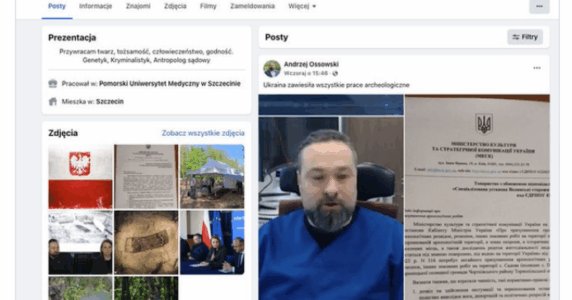Navigation and useful materials
On February 27, the Centre for Strategic Communication and Information Security, together with partners, held a round table on the topic “Russian propaganda in the Middle East: narratives, dissemination, counteraction.” During the event, the results of the analysis by the CSCIS of the media landscape of Turkey and Egypt based on the monitoring conducted by the Ukrainian social startup LetsData in partnership with the NGO “Detector Media” in January 2023 were presented. Thus, it was possible to find out what the online media of the Middle East countries tell about Ukraine, and how Russian propaganda affects it.
The study presents only those narratives that reproduce Russian propaganda, which does not exclude the presence of productive and neutral narratives in the media of the analyzed countries.
Methodology: using machine learning, publications were collected with at least one mention of Ukraine and/or the war in Ukraine in the online media of the countries studied. For each country, the most visited online media sites (also considering those that share pro-Russian rhetoric), TV channels, and newspapers that have an online version were selected. Data collection and analysis were conducted in the original language. Preparation and processing of data were conducted in the Python programming language. Text processing was based on content analysis.
Features of the spread of Russian narratives in Turkey and Egypt
One of the features of the spread of Russian narratives in Turkey and Egypt, which were identified during the monitoring, was the presence of simultaneously contradictory messages targeting one country. For example, on the one hand, the narrative was spread that “Western countries supply Ukraine with weapons, which continues to escalate the war on the part of Russia,” on the other hand, — “Western countries refuse to supply weapons.”
Another feature was that one message could illustrate and “reinforce” several narratives at once.
There is also the development of some messages in its history. For example, the emergence of new variations or combining several previously separate ones according to the scheme: cause-effect.
Joint Russian narratives in the media space of Turkey and Egypt
A comparative analysis of the Russian narratives that were identified during the monitoring showed those that were common to both countries, and those that were inherent in only one of them. In particular, among the narratives found in both countries were the following:
● “Western aid to Ukraine provokes Russia”/ “The supply of weapons to Ukraine confirms that the West is fighting against Russia”
For example, in January, the following messages were noted among the publications: “the largest US aid package to Ukraine is a step to anger Russia,” “the increase in the number of the Russian army is associated with the proxy war waged by the West,” and “if the West provides Ukraine with more weapons, this will only lead to escalation.”
● “The West prolongs the war of Russia against Ukraine (“the Ukraine crisis”)”/ “The supply of weapons prolongs the suffering of the Ukrainians”
Similar messages were spread about “the prolongation of the suffering of the Ukrainians due to military assistance to Ukraine.” For example, “the supply of Western armoured vehicles and other weapons to Ukraine prolongs the suffering of the Ukrainians and does not change the balance of power” and “the Ukrainians will have to pay a heavy price if the West provides tanks.”
● “Ukraine is creating provocations against Russia”
For example, the analyzed publications stated that allegedly “Ukraine will blow up its own breadbaskets,” “Ukraine is going to exhume the graves of the dead.” All of these messages were used in the context that in this way Ukraine “prepares provocations against Russia.”
● “Split/quarrels within the West”/Attempts to divide the EU countries
In particular, Ukraine is allegedly “the cause of quarrels and splits.” For example, “the Ukraine crisis causes tension in relations between Washington and Berlin.”
● Manipulation of the topic of religion in Ukraine
Among the identified messages were the following: “the Ukrainian Orthodox Church is used as a tool to incite Russian-Ukrainian hostility,” “the Ukrainian authorities are involved in a campaign against religious institutions,” and “Kyiv and Western countries are trying to separate the Russians from the Ukrainians on religious grounds.”
● Circulation of the topic of how to persuade Ukraine to “peace negotiations”
For example, the publications stated that “Kyiv only needs to be forced to peace” and “there are no prospects for peace negotiations with Ukraine because of its position and because the West does not allow it to negotiate.”
Other common narratives for the media space of Egypt and Turkey were:
● “Russia’s victory is inevitable”
● Threats from Russia to the West regarding the “destruction of weapons provided to Ukraine”
● “The West does not plan to provide more weapons to Ukraine.
● Threats with nuclear weapons
● “The AFU is killing civilians/shelling residential neighbourhoods”
● Mentions of the “World War III”
Russian narratives in the media space of Egypt
In Egypt, one of the main topics for manipulation in January was the issue of Germany’s provision of Leopard tanks. In addition, other universal narratives for Russian propaganda were also common, such as:
● “The United States is at war with the world.”
For example, in January publications, it was said that “America is the only beneficiary of the armed conflict” and “NATO is waging a war against all the states of the world and Ukraine.”
● “The supply of weapons weakens the countries that provide them.”
In particular, it said that “the use of ammunition by Ukraine exceeds the production capacity of the EU.”
● “The West/US is using Ukraine for its own purposes”
For example, in January, publications stating that allegedly “Washington uses the Ukrainians to serve the interests of its military-industrial complex,” “Western countries stubbornly support Kyiv’s offensive policy and prepare a bloody year for Kyiv,” “Biden has the key to ending the conflict in Ukraine, but he does not use it” were quite popular.
In addition, there were reports of an alleged “American conspiracy,” according to which “Ukraine was chosen by the United States as the starting point for a war against Russia in order to weaken Europe as its competitor.”
● “Western weapons are stolen”/ “Due to corruption in Ukraine, the West ceases to support Ukraine financially”
For example, in January, there was a call for the termination of financial assistance to Ukraine, since allegedly “corruption scandals are rocking Ukraine in difficult wartime, so, there is a need to stop sending money to Ukraine.”
● “The Pentagon, Western countries are participating in the war with Russia”/ “The West is fighting against Russia”
Military aid and military training are supposed to incline to such “conclusions.” For example, “the Pentagon’s training of the Ukrainian army confirms Washington’s involvement in the conflict,” “Germany would be drawn into the war against Russia by sending heavy wheeled vehicles to Ukraine,” “the United States withdrew troops from Afghanistan to focus on Ukraine,” and the Kremlin’s statement that “the supply of weapons to Ukraine by Europe and the United States is a direct participation in the conflict” were spread.
● “Ukraine discriminates against the Hungarians”
For example, Egyptian media spread messages that “Hungary will not accept Ukraine into the EU while the Hungarian minority is persecuted” and “in Ukraine, the rights of national minorities are not respected, the rights of the Hungarians are violated.”
Among other narratives, the following were distributed:
● “Economic sanctions against Russia are ineffective”
● “Marches against Ukraine in the world”
Russian narratives in the media space of Turkey
In the Turkish information space, a comparative analysis of narratives in both countries showed that there were not so many narratives that were inherent only in Turkey. However, among them, the following were noted:
● “Russia is not fighting Ukraine, but the nationalist regime in Ukraine.”
● “Russia is doing everything for peace.”
For example, in January, one of the leading publications on this topic in the Turkish media space was the statement of the Russian ombudsman “not to incite hostility but to unite.” In particular, Russia allegedly “does everything for peace, while the West supplies Ukraine with long-range weapons.”
Centre for Strategic Communication and Information Security
If you have found a spelling error, please, notify us by selecting that text and pressing Ctrl+Enter.


